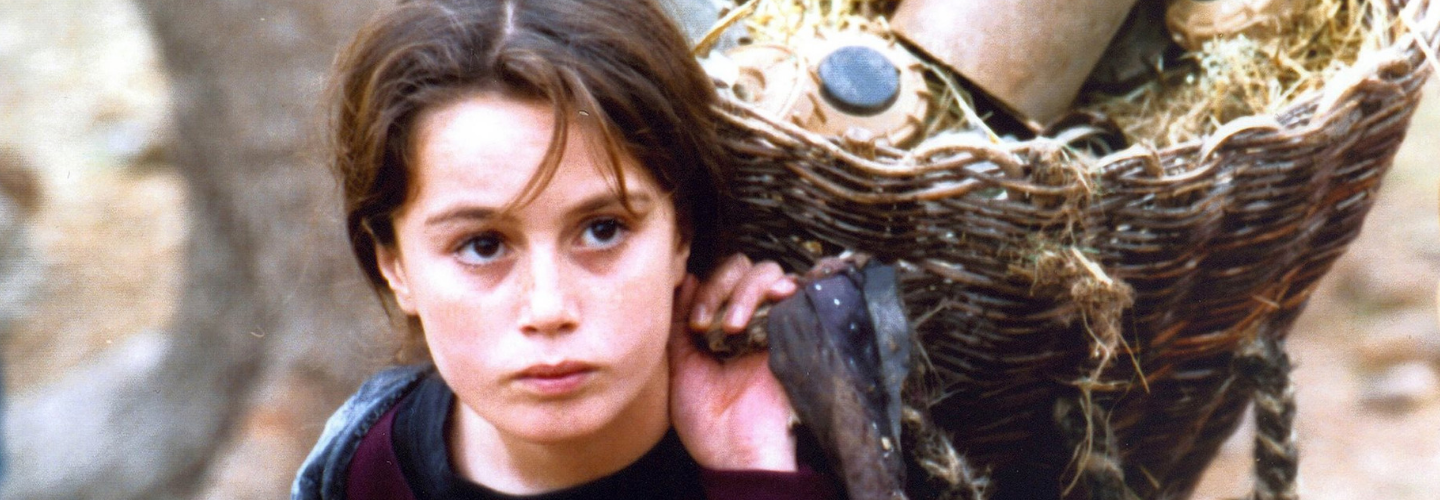Cinema
May
23-25
Event Details
Date & Time:
Wed May 23, 2018 - Fri May 25, 2018
Audience:
Open to the public
Details:
The Middle East and North African Studies Program and Block Cinema present a series of screenings and discussions with one of Iran’s leading filmmakers, Bahman Ghobadi. This program was made possible by Tamilla Ghodsi (WCAS ‘91) and Zuleika M. Ghodsi (WCAS ‘93), whose generous gift established the Iranian American Fund for Cultural Programming.A Time For Drunken Horses
Wednesday, May 23, 2018 7:00 PM FREE
(Bahman Ghobadi, 2000, Iran, 35mm, 80 min.)
Kurdish-Iranian filmmaker Bahman Ghobadi’s first feature is about the hardships faced by Kurdish siblings after their parents’ deaths. Oldest son Ayoub attempts to find work to support his family and fund an operation for his disabled brother, eventually falling in with smugglers but raising little cash. Their uncle tries unsuccessfully to marry off Ayoub’s sister in exchange for money for the operation. A second smuggling operation (in the cold mountain regions where the smugglers give their animals alcohol, providing the film’s title) also ends in failure. Ghobadi’s somber, unvarnished treatment of the lives of this desperate young trio carries on the traditions of the Iranian New Wave, but with a pointed focus on a marginalized ethnicity in Iran. His sensitive depiction of his characters led to a Caméra d'Or award at the Cannes Film Festival. “A film with a fierce, spare, beautiful cinematic language, a movie with a steely clarity that does not diminish its compassion and spiritual generosity.”—Peter Bradshaw, The GuardianPrint courtesy of TIFF Film Reference Library
Postscreening discussion with Bahman Ghobadi led by Emrah Yıldız (Northwestern University Assistant Professor of Anthropology and Middle East & North African Studies) and Foroogh Farhang (Northwestern University graduate student)
Turtles Can Fly
Thursday, May 24, 2018 7:00 PM FREE
(Bahman Ghobadi, 2004, Iran, 35mm, 98 min.)
Bahman Ghobadi’s raw and moving war story was the first film shot in Iraq after the fall of Saddam Hussein. It is focused on several children living in a Kurdish refugee camp near the Iran-Iraq border just before the 2003 U.S.-led ground invasion. Satellite, a young teen, is the leader of a gang of kids, who he puts to work clearing land mines that he then sells to arms dealers. He is a natural entrepreneur, looking to turn every situation to his advantage. He becomes smitten with Agrin, a troubled teen girl who arrives with her armless brother and a blind toddler and who has a painful past. Ghobadi’s vision of these children’s lives is a bleak one, but moments of humor, hope, and even fantasy puncture the film’s harshness. Critic Robert Koehler calls the film “engrossing” and “nuanced” and says that with this film “Bahman Ghobadi confirms his place as the poet laureate of Kurdish cinema.”Preceded by the Chicago premiere of Sometimes Look Up (Bahman Ghobadi, 2014, digital, 15 min.)
Postscreening discussion with Bahman Ghobadi and film critic Jonathan Rosenbaum led by Brian Edwards (Director of Northwestern University's Middle East and North Africa program)
No One Knows about Persian Cats
Friday, May 25, 2018 7:00 PM FREE
(Bahman Ghobadi, 2009, Iran, 35mm, 106 min.)
All Negar and Ashkan want to do is play music—described as ‘indie rock’—but that’s not so easy to do in contemporary Iran, where they and other musicians must skirt the law to perform, often in clandestine, “underground” venues. Like the two earlier films in this series, No One Knows About Persian Cats is a critical look at social and political issues in Iran; New York Times critic A.O. Scott calls it both “seething” and “bouncy.” The film is certainly lighter than A Time for Drunken Horses and Turtles Can Fly—it follows Negar and Ashkan as they try to round up a band and obtain travel visas to leave the country. Much of the energy and vibrancy comes from the almost guerrilla-style filming in Tehran and from the cast, which is largely made up of real musicians. Narrative tropes familiar in music films—auditions, rehearsals, dealing with bureaucracies, arranging gigs—gain a freshness from the uniqueness of the cultural setting. Though quite different from his earlier films, Persian Cats is another work about hope and perseverance in challenging circumstances.
Postscreening discussion with Bahman Ghobadi led by Hamid Naficy (Northwestern University Professor of Radio/Television/Film) and Simran Bhalla (Northwestern University PhD. candidate in Screen Cultures)
Contact The Block Museum of Art for more information: (847) 491-4000 or email us at block-museum@northwestern.edu
